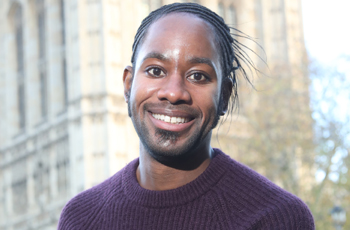
JASON Arday, 37, a renowned sociologist, is to become the youngest black professor ever appointed at the University of Cambridge.
He will assume his position on March 6 2023.
Professor Arday, is a highly respected scholar of race, inequality, and education. He was diagnosed with global development delay and an autism spectrum disorder at the age of three, was unable to speak until the age of 11, and could not read or write until he was 18.
The young Jason ardently questioned the world around him despite his inability to talk. “Why are some people homeless?” he remembers wondering. “Why is there war?” he asked and began to study.
Arday studied for a BTec at college after earning two GCSEs in physical education and textiles. He then finished his first degree in
PE and education studies, then at Liverpool John Moores University, he pursued two master’s degrees, a PGCE to become a PE teacher, and a Doctorate. He worked part-time jobs at Sainsbury’s and Boots to pay for his studies.
“My work focuses primarily on how we can open doors to more people from disadvantaged backgrounds and truly democratise higher education,” he said. “Hopefully being in a place like Cambridge will provide me with the leverage to lead that agenda nationally and globally.”
He added: “Talking about it is one thing; doing it is what matters. Cambridge is already making significant changes and has achieved some notable gains in attempting to diversify the landscape, but there is so much more to be done – here and across the sector.”
He hopes that by sharing his remarkable journey, which will begin next month as he assumes the position of professor of sociology of education at Cambridge, others from underrepresented backgrounds will be motivated to pursue higher education.
Prof Arday, one of four kids, was born and raised in Clapham in South London. He used sign language up until the age of 11, and he studied with speech and language therapists a lot as a youngster. Though it was predicted that he would require lifelong care, he surprised everyone.
He recalls that seeing Nelson Mandela’s release from jail on television and South Africa’s symbolic victory in the 1995 Rugby World Cup were important experiences.
He claims that growing up in a very disadvantaged location and then working as a school teacher gave him first-hand knowledge of the systematic disparities that children from ethnic minorities encountered in schooling.
He said: “I knew I didn’t necessarily have huge amounts of talent, but I knew how badly I wanted it, and I knew how hard I wanted
to work.
“At Cambridge there’s been some really, really useful, and powerful pockets of good practice. But there’s still lots of areas
of development, as there is across the sector.
“A big part of the sector’s problem is that it does things in a very unsustainable way. It often leans on the labour of black and
ethnic minority professionals and academics to do this labour unremunerated and unrecognised.”
There are currently five black people who are professors at the university.